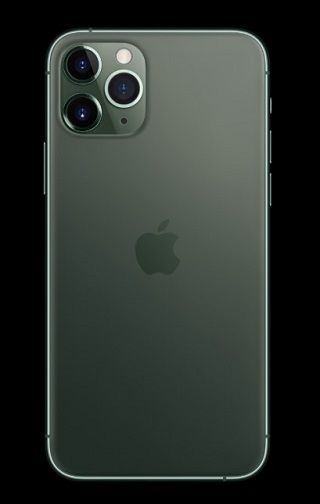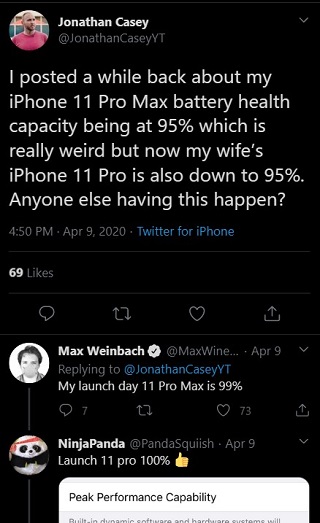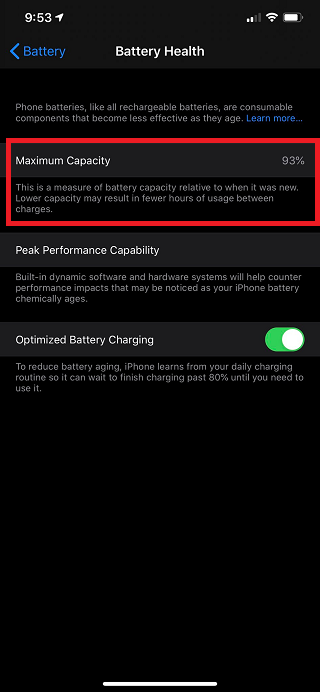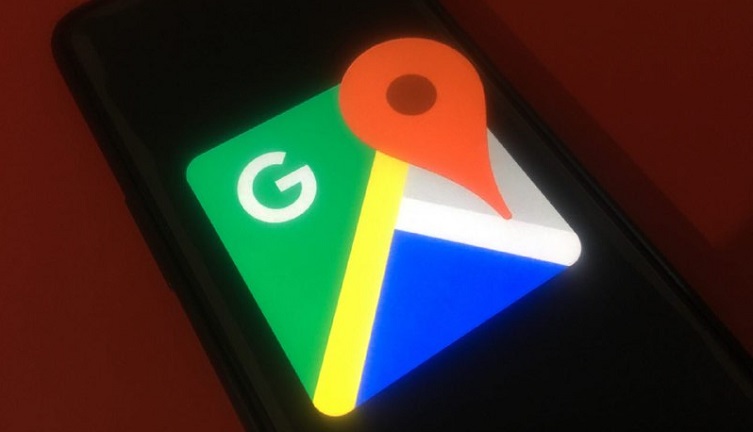New updates are being added at the bottom of this story…….
Original story (published on April 16, 2020) follows:
iPhones are known to be good when it comes to battery life. It’s even better with the big boys like the iPhone 11 Pro Max that houses nearly 4,000mAh of battery juice, promising prolonged usage on a single charge.
The duration a single charge lasts depends on what you are doing. Some activities like heavy gaming, streaming videos for long hours and navigation using Google Maps can take a heavy toll on battery life.
In such cases, you’ll need regular charging than guys who only use their phones for normal stuff like messaging, taking a couple or so photos for their Instagram, reading a few articles online and maybe sharing a couple or so tweets in a day.

Apple says heavy smartphone usage and regular charging result in chemical aging of the battery, meaning the amount of charge that a battery can hold diminishes. As a result, it takes a shorter amount of time before the battery needs a recharge.
Could these be behind the rising concerns regarding the iPhone 11 Pro Max battery health? Probably. However, affected device owners might not think so.

I just noticed that my iPhone 11 Pro Max’s battery health is down to 97%. I’m not concerned but this is the first iPhone that I’ve had drop below 100% within the first year. Not to mention the first 6-7 months.
Source
bought my iPhone 11 Pro Max on launch day and my battery health is already at 93% ? send help @Apple
Source

The fact that the iPhone 11 Pro Max battery health is dropping fast isn’t even the problem here. The problem is the inconsistencies in the maximum capacity figures coming from various users.
While some are still at 100%, some are at 97% and others below 95%, which is pretty much a concern for them. From the look of things, iPhone 11 Pro Max units that are worst hit have for the most part been charged wirelessly.
So, could wireless charging be the reason why battery health on some units is dropping so fast? Could it be the aforementioned usage patterns or is it that some battery units are not perfect? At this point, it’s hard to tell what’s really causing this issue, but time will tell.
One thing that owners of the device will be asking Apple is should they be concerned by this behavior or is it normal? Feel free to chime in with your angle in the comments section below.
Update (April 27, 2021)
According to Apple, the latest update to iOS 14.5 should address any underlying concerns regarding battery health estimates for iPhone 11 models.
Battery health reporting system will recalibrate maximum battery capacity and peak performance capability on iPhone 11 models to address inaccurate estimates of battery health reporting for some users
For a detailed insight into what Apple has included in iOS 14.5 with respect to iPhone 11 series battery health estimates, check out this post.
PiunikaWeb started as purely an investigative tech journalism website with main focus on ‘breaking’ or ‘exclusive’ news. In no time, our stories got picked up by the likes of Forbes, Foxnews, Gizmodo, TechCrunch, Engadget, The Verge, Macrumors, and many others. Want to know more about us? Head here.

![[Update: Fixed in iOS 14.5] Hey Apple, should iPhone 11 Pro Max battery health be a concern? [Update: Fixed in iOS 14.5] Hey Apple, should iPhone 11 Pro Max battery health be a concern?](https://stage.onepluscorner.com/wp-content/uploads/2020/04/iPhone-11-Pro-Max.jpg)
